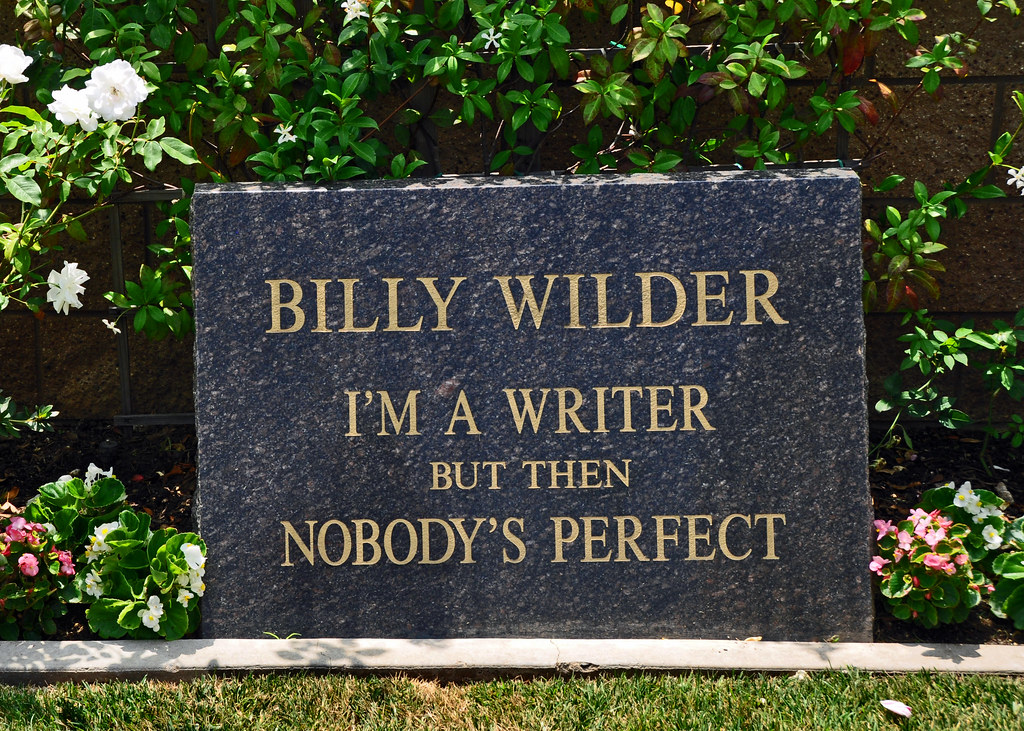Idea Theft and Other Pointless Concerns

No one is going to steal your fucking idea.
It’s just not that special. Get over yourself.
(wait for it… wait for it…)
Now that we’ve cleared the room of the idiots, let’s get down to what I mean here. This is not an attack, but a friendly goad. If you’re serious about the craft of writing, you can’t be precious about your concepts.
Feedback is Vital
Idea Theft isn’t really a thing – what you need is feedback to see whether your idea is even worth stealing – no one without connections actually gets any mileage out of bare ideas in the first place – and no one without skill could turn it into a saleable script – are these any of the people you’re talking to? Then don’t worry.
The amount of energy you expend guarding some “brilliant” or “game-changing” idea is actually energy that another writer is spending doing actual work. And at the end of the day, good concepts are little more than window dressing. If you don’t have the skills to write a serviceable script and–once it’s done–the wherewithal to make things happen, then you basically have jack shit.
In other words, it’s nice to have a concept–even an excellent one–but that shit ain’t gonna write itself.
On top of that, no one without connections–and a track record–is ever going to score cash to turn a bare idea into a saleable script–and even then, the odds are slim.
What’s most important as a beginning writer is to interact with others and stress test both concepts and drafts in order to get your script in the best shape possible.
How Ideas Got So Precious
Early-stage writers often treat ideas like some sort of saint’s foreskin in a jar of olive oil.
They keep it locked up in the metaphorical crypt and think they need to build a cathedral over the top of it before anyone can see the finished work. The problem is that work is never finished. Things have to be shipped at some point. Even the best scripts out there hit a deadline at some point. Almost any writer goes back to earlier work and cringes a bit.
But if you don’t get the idea out there and let it breathe and interact with suggestions, dispute, and general feedback, it’s likely just to rot in darkness. Maybe formaldehyde would have worked better than olive oil.
In short, getting the idea out of your head and into the ether–among a group of trusted confidants–it is something that isn’t just rattling around in your head. It might receive feedback that is difficult to process. Worse, someone might simply not care.
(Pro tip: if a person gets totally enraged, you’re doing it right. Keep going!)*
Remember, an idea is worth nothing without execution. Like it or not, the fact that feedback is necessary for execution makes execution more of a group process than you might expect.
For that matter, even if you did make everything perfect and then get the script picked up–only to get butthurt over every tiny suggestion or tweak while it’s in development, you are, as the philosopher Sobchak would put it, entering a world of pain.
*Fun story: one time, in film school (band camp it ain’t), we were told to pick a classic story to adapt into a screenplay. First we had to pitch it. I proposed the story of Procne, Philomela, and Tereus from Ovid’s Metamorphoses. The tutor nearly had a stroke when reading the outline of the story and I was castigated in front of the entire class. So much for the Classics.
But What If Someone Steals It?!
Oh here we go.
Steal what, pray tell?
Listen: no one is lining up to steal your half-baked premise.
And, let’s be perfectly honest here: if someone does in fact take your idea and make a brilliant script out of it while you’re doing some sort of masturbatory dance with your index cards, this person deserves the credit.
To wit: Zuck is worth one hell of a lot more than the Winklevi. Just saying.
Like it or not, good ideas are cheap. Like elbows and body odor, everyone has at least one. The difficult part is finding a person competent enough to craft this into a 100-page screenplay with good structure, tone, fulfilled character arcs, dramatic irony, subtext, etc.
Oh, and a second act that doesn’t shit the bed.
Remember: You Don’t Need Permission to Write It
However, as you look toward feedback, remember you’re not looking for validation. If you’re trying to get people to love your work or tell you what a genius you are, then this is just as bad as hoarding the idea.
If the idea isn’t bulletproof, discuss it until it is. If the idea doesn’t click, then bounce it off some people and see how it’s working. There’s nothing wrong with a story that’s a bit weird or wonky. Just explaining it to people has a weird way of clarifying your own thinking–that’s totally regardless of whether they have any useful suggestions.
Actually, a good chunk of the time, the people you present your idea to won’t have useful ideas to give you. However, the back-and-forth helps you understand what you need to do.
Remember, having something that’s not working properly doesn’t make you less of a writer. The only thing that makes you less of a writer is simply not writing in the first place.
Let Other People Do the Work
Imagine there’s a problem with your script that you really hoped no one would notice. How would you feel if someone found it–and offered the perfect solution?
This, to me, sounds like a dream come true. Why not let someone else do the heavy lifting? Story problems can be really difficult and fixes come from unexpected places.
In any sort of creative industry–with the possible exception of fine art or novel-writing–you can expect a degree of collaboration to be standard. It’s totally normal for a writer to use others’ insights. The key is that the writer has the skills to put those insights into practice when all is said and done.
Remember, actually getting the job done is where the vast majority of people drop off. Even if they get a clever suggestion, they might promptly forget it–or perhaps even complain that it doesn’t fit precisely. Rather than massaging the idea to fit, they are more content going back to the story structure they already know to be faulty.
But if it’s known to be faulty, why not try something that is not known to be faulty? Surely there would be a better chance of success in that case.
However, if you get a fully-formed way to click that last puzzle piece together, run with it. That’s what “Thanks” in the credits are for.
Your Friend’s Partner
This person is brilliant, great-looking, and effortlessly funny. So out of your league.
You’re talking about your script and this person–your friend’s partner–casually tosses off a story fix that has been eluding you for six months. This might be crushing–especially when your friend callously dumps this glorious creature the next week because the second toe is longer than the first or whatever…
But should your friend’s (ex-)partner be writing the script?
Of course not. Honestly, this person probably does have the talent. That glide through the room, that air of sophistication, the fancy degree that probably took zero effort. But still, this person did not shape structure, character voice, fix numerous plot holes before, or do a fifth rewrite of Act I because Act III never quite gelled otherwise.
That was you, my friend.
Or it will be, at any rate–as long as you stop worrying and actually write.
This person is amazing. This person helped. But this person did not write the script. If this person does become a successful writer–clearly the talent is there–it won’t be with your idea. Relax.
Justification to Suck
The tired-ass excuse “What if someone steals my brilliant idea?” simply isn’t a concern of professionals.
Hell, I’ve met professionals who have actually experienced idea theft. But it doesn’t stop them from writing, grinding, failing, getting feedback, starting over, and whatever is necessary to get the work done. Because–naturally–they are professionals.
And then a bunch of idea hoarders just go to screenwriting conventions and take online courses without doing the exercises and telling everyone about their brilliance–yet they never get their hands dirty. Ninety-nine times out of a hundred, perfectionism is just procrastination with an English Middle Class-level lack of self-awareness. (Cf. Guardian opinion pages.)
Works in Progress
Everything is always a work in progress. Even if you finish a draft or three, refine it, tighten everything, fix logic gaps, and really get to understand the theme somewhere in the second rewrite, you’ll still want to fix more.
Yet there comes a time when it has to be let go. Whether that’s shot or just put in a drawer for another day or another deal.
The Ether
And anyhow, as happens frustratingly often, ideas just seem to be in the ether. Someone else might well come along and have a story that’s strikingly similar–even if they didn’t steal it from you! If this person’s film better, perhaps she was the right person to tell that story at that time. But if it’s worse, you might well have an in. (Actually, if yours is worse but it’s cheap to make, that’s probably good as well.)
Remember, the money people like things that are similar to other, successful things. For every Turner and Hooch starring Tom Hanks, there’s a K-9 starring Jim Belushi. If there’s a market for the product, come in–the water’s just fine.
Everyone is Stealing
“Great artists steal; they don’t do homages.” –Quentin Tarantino
On some level, everything is a remix.
(Except maybe the 30% (and rising!) of AI output that’s straight up ketamine lunacy. But that’s a story for a different article.)
Let’s face it: any working writer is stealing–sometimes consciously, sometimes not–from people they know, films they love, conversations overheard on the subway.
There’s no rule that says genius invents things from scratch. Rather, genius repurposes and adapts and reframes. It makes something that ultimately feels new.
So next time you hear a story premise, think how you might approach the same thing. If it’s something that worms its way into your brain and takes residence–maybe it’s worth writing. Because by the time your craft has its way with the premise, it will be something that’s undeniably yours.
I always preferred K-9 anyway.
Guarding Ideas is a Waste of Time and Energy
It’s not that idea theft doesn’t exist. It’s that it just doesn’t matter.
If you want to be a writer so bad, just write. Finish screenplays. If you want to be original, borrow liberally from whatever works, figure out how it works, put it back together, and wait–by now you have something of your own.
Paranoia just makes you look foolish to actual writers. That’s not to say workshopping and feedback is easy–sometimes it really sucks. But learning how to deal with it–and, particularly, learning when to listen and when not to listen to it–is vital.
This isn’t a game of someone having the idea first. You don’t win points for inventing Spanx in 1993. Some lady made billions on that shit and you just sound like my drunk uncle at the barbecue.
Create your ideas. Workshop them. Get feedback. Or shut up.







